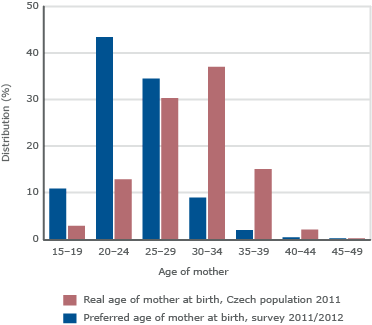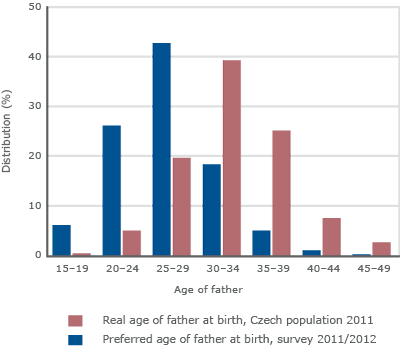What is the ideal age to become a parent? The recent boost in the use of assisted reproduction techniques that allow women (and men) to have children at older ages has opened up a wider debate about the most appropriate age limit for using techniques to facilitate conception outside of the biological reproductive life cycle.
In 2012 the Czech Republic established an age limit of 49 years for women who want to access assisted reproduction techniques. Do children’s preferences match the limit set by the law? Do children desire to have younger parents? Jiřina Kocourková, Hana Konečná, Boris Burcin and Tomáš Kučera test the acceptability of such age limits by asking children and adolescents how old they would want their parents to be. Their findings reveal that Czech children and adolescents would prefer to have younger parents.
The authors state that a legitimate debate about the age limit for providing assisted reproduction services to women in their late reproductive ages should take into account not only the procreative freedom of all individuals, but also the multiple perspectives of those involved in the process, such as future parents and children, medical personnel, donors and the society overall.
Children’s desires vs. parent’s reproductive choices
Authors found that children and adolescents in the Czech Republic would prefer to have both a mother and a father two years younger than they actually are (Figure 1). The main reason why children wish to have younger parents is because they are afraid of losing them at younger ages. Some children and adolescents also declare that they would like to have young and active grandparents for their own children, while others seem to be worried about communication problems that might result when there is a significant age difference between them and their parents.
The vast majority of respondents declared that they would prefer that their mother and their father be under 30 years at the time of their birth (Figure 2). These results show that children’s preferences for having younger mothers are in line with the optimal biological age for childbearing, but are completely inconsistent with facts: Even if children desire younger parents, people in the Czech Republic are having children at later ages.

Figure 1. The real and preferred age of childbearing for mother and father of respondents (aged 11-25 years).
Notes: Sample size 1.181. The real and preferred ages of childbearing are depicted on the y-axis.

Figure 2. Percentage of respondents (aged 11-25 years) who prefer that their mother and father were under 30 at the time of their birth.
This Population Digest has been published with financial support from the Progress Programme of the European Union in the framework of the project “Supporting a Partnership for Enhancing Europe’s Capacity to Tackle Demographic and Societal Change”.